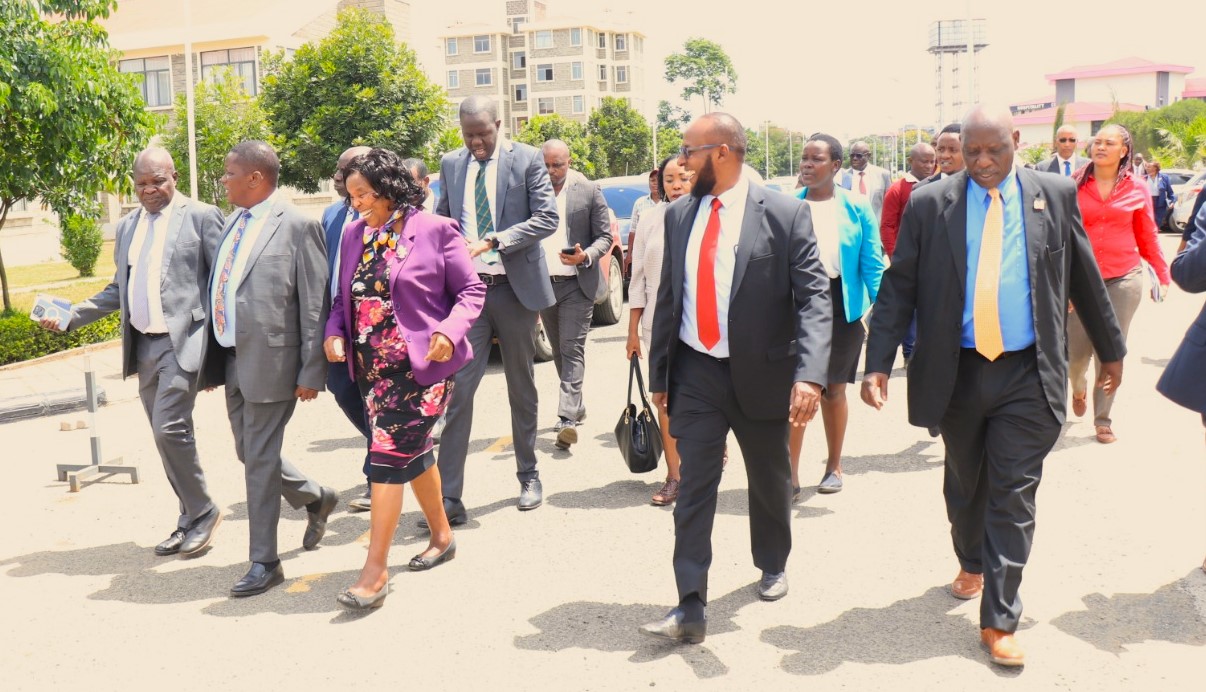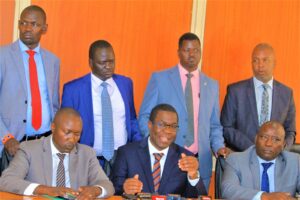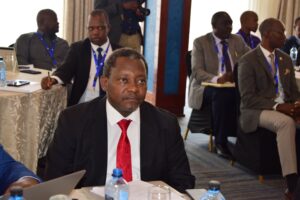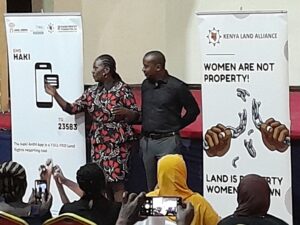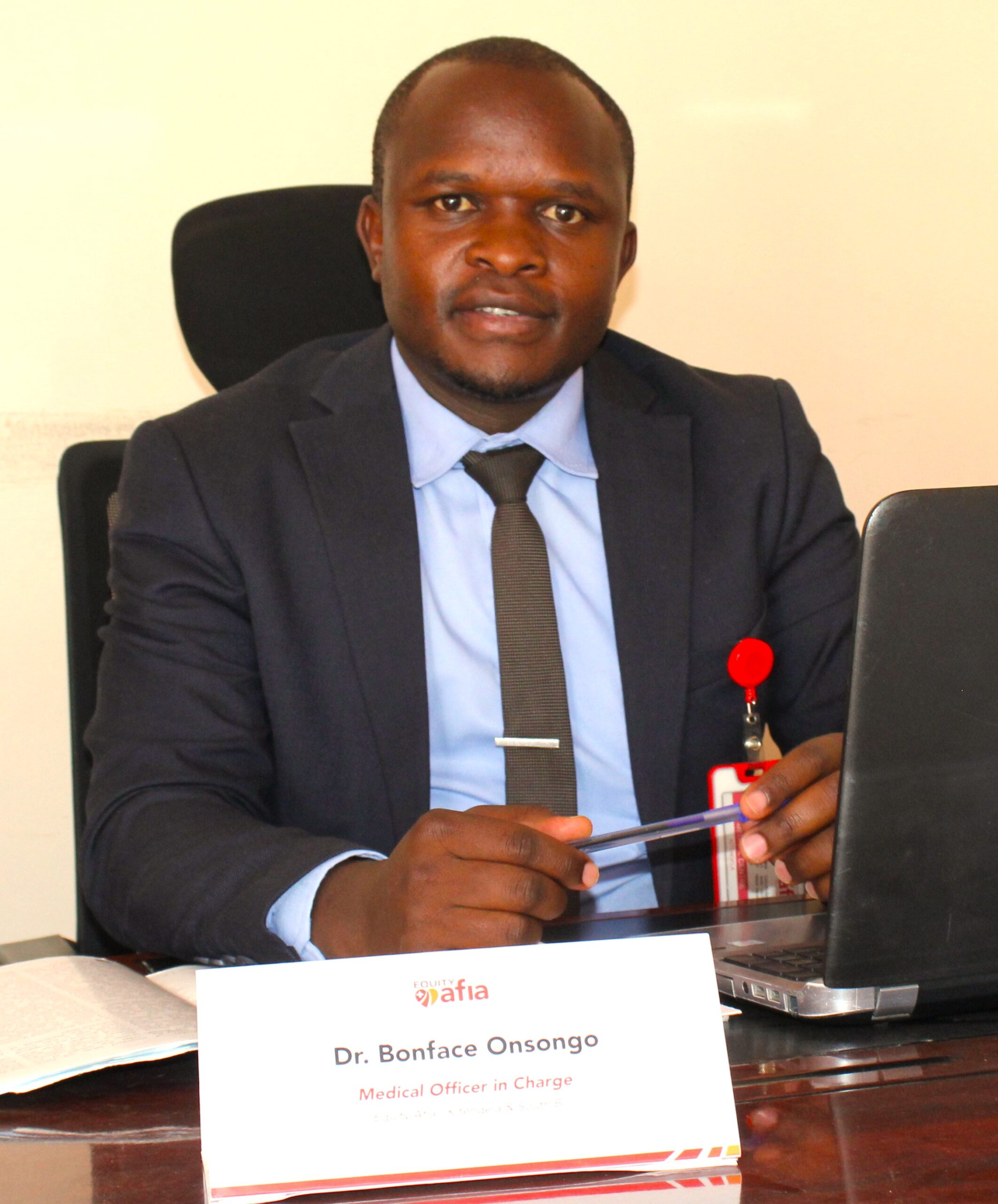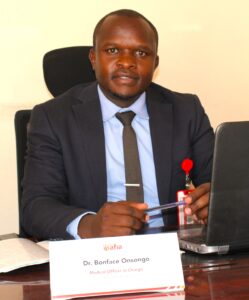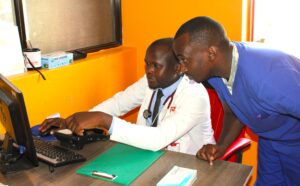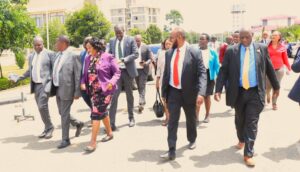
The National Assembly’s Health Committee Instructs Kenyatta University Management to Cease Consideration of Reverting Kenyatta University Teaching, Referral, and Research Hospital (KUTRRH) Ownership.
MPs instructed the University Vice Chancellor, Paul Wainana, to cooperate with the hospital management to benefit students in the schools of medicine, nursing, pharmacy, public health, and dentistry.
The university’s vice chancellor, Prof. Paul Wainana, and the hospital’s board chairperson, Prof. Olive Mugenda, engage in public dispute over hospital management rights.
“To revert KUTRRH to Kenyatta University, it would therefore be mandatory to revoke the legal notice No. 4 of 2019 governing its establishment. Which will not be possible, university management must leave with the fact that KUTRRH is a state department under the Ministry of Health, therefore, oversight by this committee,” said Endebess MP Dr. Robert Pukose, Chairperson of the Health Committee.
“It is the health committee that appropriates money to KUTRRH while our sister committee on education oversees and appropriates funds to Kenyatta University, so the feuding must end and everyone must respect his space,” Dr. Pukose added.
Dr. Pukose spoke today during the fact-finding mission at KUTRRH to assess its capacity and services, particularly in the realm of cancer treatment and diagnosis.
The committee visit aimed to evaluate the hospital’s infrastructure, technology, expertise, and patient care practices in managing cancer diseases.
“The committee has observed with great pleasure that the hospital boasts of modern infrastructure and facilities tailored to cancer treatment and diagnosis. This includes advanced imaging equipment, radiation therapy facilities, and specialized oncology units,” said Dr. Pukose.
“We want you to remain in the realm of cancer treatment and diagnosis because you are recognized as a specialized hospital at level six hospital, many Kenyans now depend on you and we don’t want you to veer off from that trajectory,” he added.
Kenyatta University Teaching, Referral, & Research Hospital offers a holistic approach to cancer care, encompassing prevention, screening, diagnosis, treatment, and palliative care.
In his remarks, Patrick Munene, the Chuka/Igambang’ombe MP and vice-chairperson of the committee, commended the hospital management for their holistic approach to cancer care, praising the integration of diverse medical specialties and supportive services aimed at delivering comprehensive care to cancer patients.
“We are happy that the hospital has assembled a multidisciplinary team of healthcare professionals specializing in oncology, including medical oncologists, radiation oncologists, surgical oncologists, pathologists, and supportive care specialists. This expertise ensures that patients receive personalized and evidence-based care tailored to their specific needs,” said Munene.
Kisumu Central MP Joshua Oron advocates for increased investment in research, clinical trials, and advanced technologies to improve cancer treatment outcomes and drive medical innovation.
Nandi Women representative Cynthia Muge-Rotich acknowledged efforts by the hospital to enhance the accessibility and affordability of cancer care services.
“Initiatives such as subsidized treatment programs, partnerships with insurance providers, and community outreach programs aim to mitigate financial barriers and ensure equitable access to quality cancer care,” said Muge.
Prof. Olive Mugenda, Chair of the KUTRRH Board, expressed gratitude to the committee for their unwavering support for the institution. She assured the committee of the hospital management’s steadfast dedication to its mandate.
Despite the hospital’s commendable efforts, the committee identified challenges such as limited resources, workforce shortages, and infrastructure constraints.
Proposals were put forward to tackle these issues, encompassing heightened government funding, initiatives to bolster capacity, and fostering strategic partnerships with academic institutions and international organizations.
